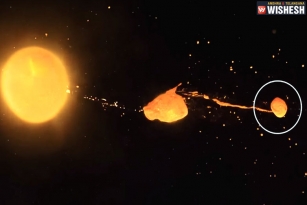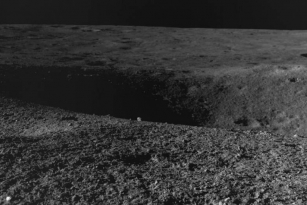Huge Ocean may be hidden underneath, Xinjiang Institute of Ecology and Geography research says
July 30, 2015 17:54
According to a breakthrough discovery by Chinese scientists, there could be an “ocean” hidden under one of the driest areas on the earth. The amount of salt water found beneath the Tarim basin in northwestern Xinjiang province might be equivalent to 10 times the water in all five Great Lakes in the North America.
“This is a terrifying amount of water,” said professor Li Yan, who led the study at the Chinese Academy of Sciences’ Xinjiang Institute of Ecology and Geography in Urumqi, the Xinjiang capital. “Never before have people dared to imagine so much water under the sand. Our definition of desert may have to change,” he said.
Around 10 years ago during the course of research, Li’s team found that large amounts of carbondioxide are disappearing in Tarim, with no explanation over where it could be going.
Scientists had suspected that the melt water from high mountains nearby might had sipped beneath the basin, but the exact amount of water reserves available remains unknown. Exact estimates on this are difficult, because surface water in the region, such as seasonal rivers and lakes appear at random times in inconsistent locations, making direct measurements impossible.
Li’s team stumbled on the discovery accidently. “We were after carbon, not water,” he said. Greenhouse gas carbondioxide can be absorbed in the certain regions known as "carbon sinks", such as forests and oceans. Locating these sinks will help the scientists to better understand climate change.
They have found that under the Tarim desert, over a depth stretching thousands of metres, there is an enormous amount of saline water full of carbon dioxide. “Our estimate is a conservative figure. The actual amount could be larger,” Li said.
“CCS [carbon capture and storage] is a 21st century idea, but our ancestors may have been doing it unconsciously for thousands of years," he said. Li emphasised that the "ocean" under Tarim would not be much immediate use of Xinjiang's economic development. “It’s like a can of coke. If it is opened all the greenhouse gas will escape into the atmosphere,” he said.
By Premji













